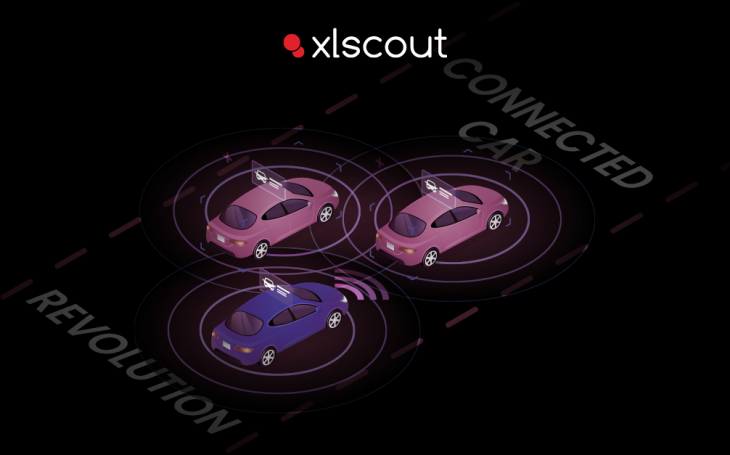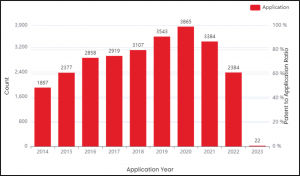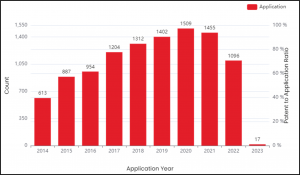
As cars become more connected to the internet and other devices, the automotive industry is undergoing a revolution. The use of technology in automobiles is changing the way we drive, making them safer, more efficient, and more enjoyable to drive. This revolution, however, brings with it new risks and challenges. In this article, we’ll look at the connected car revolution and highlight the opportunities and challenges it presents.
Connected Cars
Connected cars are vehicles that have advanced communication technologies that allow them to communicate with other devices or networks, such as other cars, smartphones, and the internet. This technology allows vehicles to communicate with one another, share information, and interact with their surroundings in previously unimaginable ways.
Connected cars communicate using a variety of technologies, including Bluetooth, cellular networks, Wi-Fi, and satellite communications. They are also frequently outfitted with cameras, advanced sensors, and other devices that allow them to collect and share data about their surroundings with other cars or the cloud.
Some of the advantages of connected cars include increased safety, improved fuel efficiency, and increased driver convenience. Connected cars, for example, can warn drivers of potential road hazards such as road construction or accidents and can even automatically brake or steer to avoid collisions.
Overall, the advancement of connected car technology is expected to have a significant impact on the automotive industry as well as how we drive and interact with our vehicles.
The Opportunities of the Connected Car Revolution
The proliferation of connected cars offers substantial opportunities for improving efficiency, safety, and convenience.
Blind spot monitoring, lane departure warnings, and automatic emergency braking have all been shown to reduce fatalities and crashes. According to a National Highway Traffic Safety Administration study, vehicles equipped with these features reduce rear-end collisions by 26%.
Examine the graph below, which shows the increase in automatic braking patents from 2014 to 2021.

This trend indicates that automakers recognize the importance of safety features such as automatic braking and are investing in R&D to improve these technologies. As a result, in the coming years, we can expect to see a greater number of vehicles equipped with improved safety features such as automatic braking, which can help prevent mishaps and save lives on the road.
Connected cars have the potential to improve fuel efficiency and reduce emissions, saving drivers money on fuel and maintenance while reducing their environmental impact. According to an International Energy Agency report, connected car technology can improve fuel efficiency by up to 10% while lowering CO₂ emissions by up to 15%.
Furthermore, connected cars open up new avenues for entertainment and convenience. Drivers can easily access podcasts, music, and navigation apps while driving thanks to smartphone integration. Voice-activated controls and other hands-free features also make using these features while driving easier and safer.
The Risks of the Connected Car Revolution
While the connected car revolution opens up new possibilities, it also introduces new risks and challenges. The threat of cyber-attacks is one of the most serious risks. Cars are becoming more vulnerable to hacking and other forms of cybercrime as they become more connected to the internet and other devices. The number of cyber-attacks on connected automobiles has gone up by 113% in recent years, according to a Ponemon Institute report.
Aside from cyber-attacks, connected cars generate massive amounts of data that can be abused. This information contains sensitive information such as personal preferences, driving habits, and location. According to a Consumer Reports, carmakers frequently share this data with third-party advertisers without the drivers’ consent, raising concerns about data privacy and security.
Furthermore, as connected cars collect more personal information on drivers and passengers, privacy concerns are growing. Indeed, according to a recent survey, 78% of drivers are concerned about the privacy implications of connected cars.
As the graph below shows, carmakers and researchers are heavily patenting in the security threat sector.

We can ensure that the perks of the connected car revolution are enjoyed without compromising safety, security, or privacy. This can be done by adopting strong security protocols, implementing strong data protection measures, and respecting drivers’ privacy rights.
Conclusion
The connected car revolution presents numerous opportunities to improve safety, convenience, and efficiency. However, it introduces new risks and challenges, such as the possibility of data misuse, cyber-attacks, and privacy violations.
Addressing these risks will be critical as the automotive industry embraces connected car technology. It is also critical to ensure that drivers and passengers can benefit without jeopardizing their safety or privacy.

